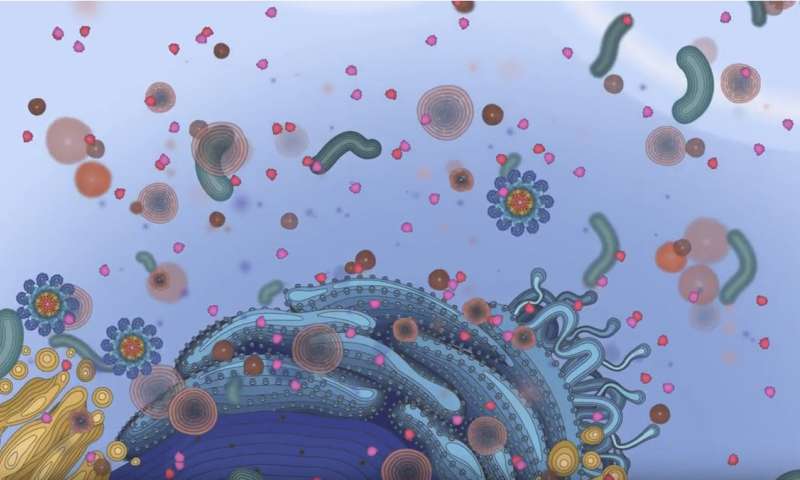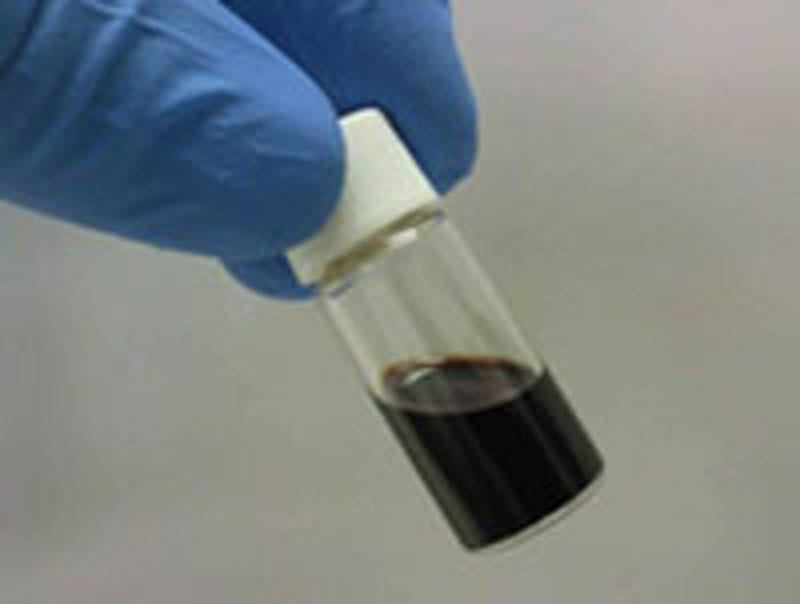
Despite barriers of blood, brain and bureaucracy, intranasal insulin may emerge as a promising treatment for pathological memory loss
The newest chemical under investigation for managing Alzheimer’s disease (AD) is actually not new at all. Insulin, the therapeutic hormone all-too familiar to individuals with diabetes, has been around for decades. In fact December will mark 90 years since its discoverers earned the Nobel Prize in Physiology or Medicine for the extraction of insulin for clinical use. Yet to say that insulin has been under our noses all these years wouldn’t exactly be correct. Because if it had been under our noses, we might have sensed its neurologic benefits sooner.
The latest insulin therapy is not delivered via injection like its diabetes-treating counterparts, nor does it come in the form of a pill or a patch like the cholinesterase inhibitors often prescribed to patients with AD. Instead this novel therapeutic enters the body through the nose—the only entry point that gives insulin a chance of reaching the brain.
A large peptide molecule, insulin from the blood cannot float easily into the brain because the blood brain barrier (BBB), a sort of neuroprotective moat, prevents its transport. Fortified by cellular guards called tight junctions, the BBB rejects many pharmacologic hopefuls, allowing entrance only to certain types of substances. Namely small or lipophilic molecules can be administered orally (or via injection, or through the skin) and as long as the relevant chemicals end up in the blood stream, they can casually saunter across the BBB and act on the brain. Large and cumbersome, insulin does not have this luxury and must therefore take a more creative route across the moat.
The nose, conspicuous and sometimes even goofy, provides that creative route. Yet it’s a route that, for many years, researchers were hesitant to take.
“They would say things like, ‘Well, why would there be a blood brain barrier if all you had to do was put something in the nose and it would go to the brain?’” says William H. Frey II, Ph.D., Research Director at HealthPartners Center for Memory & Aging. As of 1989 Frey had been “in the Alzheimer’s deal” for over a decade. At that time he was conducting clinical trials of a neurotrophic factor (a therapeutic protein) to treat AD and, because of the seeming insurmountability of the BBB, the work had been less than fruitful. “It became clear to me that, once again, this neurotrophic factor was not getting effectively into the brain,” he says. So Frey decided to sleep on it. “I went to sleep and I had a dream. And this is how I discovered the intranasal method of getting around the blood brain barrier,” he says. “It had been known since the early 1900s that a number of different viruses that got into the nose would travel up the olfactory nerves and the trigeminal nerves—both of these are nerves that go directly from the nasal mucosa right into the brain. The idea that came to me in this dream in 1989 was: if bad things can do it, why can’t good things do it?”
When Frey revisited the idea upon waking, it registered as simultaneously intuitive and absurd—a logical fantasy like so many dreams.
The Latest Bing News on:
Intranasal insulin
- Animal models of human type 1 diabeteson May 12, 2024 at 1:31 am
This is particularly problematic for the use of beta-cell antigen–specific mucosal immunization (such as oral or nasal insulin) to induce adaptive regulatory T cells that can establish long-term ...
- What Blood Sugar Level Requires Insulin?on May 5, 2024 at 5:00 pm
An A1C test result equal to or above 6.5% indicates a blood sugar level requiring insulin. A1C is a type of blood test designed to measure an individual's average blood sugar level across three ...
- TIME100 Health: David Bakeron May 2, 2024 at 5:19 am
Insulin lispro, for example ... and a protein-based antiviral nasal spray that targets COVID-19. Baker has co-founded 17 companies and been granted over 100 patents. Rosetta has evolved into ...
- 13 Ways to Lower Your Insulin Levelson April 25, 2024 at 5:00 pm
You may be able to help reduce high insulin levels by making dietary changes and increasing your physical activity. Insulin is an extremely important hormone that your pancreas produces.
- Inhaled insulin could improve lives of patients with diabeteson April 24, 2024 at 5:00 pm
However, recent innovations, such as inhaled insulin, the hormone made by the pancreas, which controls blood sugar, have sparked hope for more effective and user-friendly treatments. Diabetes is ...
- Insulin affordability impacts public healthon April 24, 2024 at 4:53 am
More than 8 million Americans rely on insulin to survive, according to the American Diabetes Association, but with high prices and supply shortages hampering access, lawmakers and healthcare ...
- Insulin: How Does It Work?on April 23, 2024 at 5:00 pm
Insulin is a hormone your body makes that helps it control your blood sugar level and metabolism — the process that turns the food you eat into energy. Your pancreas makes insulin and releases ...
- Early Intranasal Insulin Therapy Halts Progression of Neurodegenerationon April 18, 2024 at 5:00 pm
Administering systemic insulin to elderly nondiabetics poses unacceptable risks of inadvertant hypoglycemia. However, intranasal delivery directs the insulin into the brain, avoiding systemic side ...
- Amphastar Pharmaceuticals Interested In Potential Acquisitions In Endocrinology-Focused Companieson April 10, 2024 at 1:33 pm
Amphastar Pharmaceuticals develops, manufactures, markets, and sells generic and proprietary injectable, inhalation, and intranasal products ... a small fraction of insulin users currently ...
- Insulin and Diabetes Management Insulinon January 3, 2024 at 2:50 am
With the discovery of insulin at the University of Toronto in the early 1920’s, followed by the establishment of commercial production, diabetes was no longer a death sentence. Insulin was not a cure, ...
The Latest Google Headlines on:
Intranasal insulin
[google_news title=”” keyword=”Intranasal insulin” num_posts=”10″ blurb_length=”0″ show_thumb=”left”]
The Latest Bing News on:
Alzheimer’s
- I have a family history of Alzheimer’s disease. I wanted to understand my own riskon May 18, 2024 at 11:00 pm
For the documentary “The Last Alzheimer’s Patient”, Dr. Sanjay Gupta underwent intensive testing of his own body and brain to understand his risk of dementia.
- I have Alzheimer’s — I’m beating back the deadly disease with these simple lifestyle changeson May 18, 2024 at 5:50 pm
Two Alzheimer’s sufferers are publicly claiming to have beaten back the deadly disease — merely by adopting simple but strict changes in lifestyle. A new CNN documentary, “The Last Alzheimer’s Patient ...
- Professional Faqs: How Do I Reduce My Risk Of Developing Alzheimer’s?on May 18, 2024 at 2:28 pm
Expert opinion from Alex T. Thomas MD · 40 years of experience · USA Some ways to minimize the risk of Alzheimer's include: 1. Limiting alcohol consumption 2. Consuming a healthy, balanced diet that ...
- Signs of Alzheimer’s were everywhere. Then his brain improvedon May 18, 2024 at 12:52 pm
CNN Chief Medical Correspondent Dr. Sanjay Gupta is a practicing neurosurgeon and best-selling author on brain health. “The Last Alzheimer’s Patient” premieres on “The Whole Story with Anderson Cooper ...
- How To Prevent Alzheimer’s Disease: A Case For Vaccineson May 18, 2024 at 4:56 am
According to the World Health Organization, there are approximately 10 million new cases of ... [+] Alzheimer’s disease and other forms of dementia around the world each year. According to the World ...
- Woman claims Alzheimer’s symptoms were reversed after five yearson May 17, 2024 at 11:58 am
In “The Last Alzheimer’s Patient,” CNN chief medical correspondent follows Alzheimer’s patient Cici Zerbe who says her symptoms have been reversed after participating in Dr. Dean Ornish’s clinical ...
- Researchers ID Unique Mutation Linked to Alzheimer's Disease Riskon May 17, 2024 at 11:17 am
Griswold: Dr. Cornejo-Olivas had identified a Peruvian family in which there were four Alzheimer's disease cases as well as two individuals with cognitive impairment. So that's six siblings, all with ...
- Research Offers New Ideas for Treating Alzheimer’son May 17, 2024 at 8:33 am
It remains a matter of scientific debate whether the beta amyloid buildup is the cause of Alzheimer’s or a feature of it. It’s time to look at “out of the clump” fresh approaches.
- Music festival returns for fight against Alzheimer’son May 17, 2024 at 6:00 am
Suffolk is once again using the sounds of country music to fight against Alzheimer’s. Following last year’s cancellation due to weather, the 2nd annual Greenway Airfield Music Festival returns ...
- Country artist Jay Allen performing at Alzheimer’s Purple Galaon May 16, 2024 at 5:33 pm
The fight against Alzheimer's will get extra help this weekend from a rising country music star who knows all too well the pain of the disease.
The Latest Google Headlines on:
Alzheimer’s
[google_news title=”” keyword=”Alzheimer’s” num_posts=”10″ blurb_length=”0″ show_thumb=”left”]











